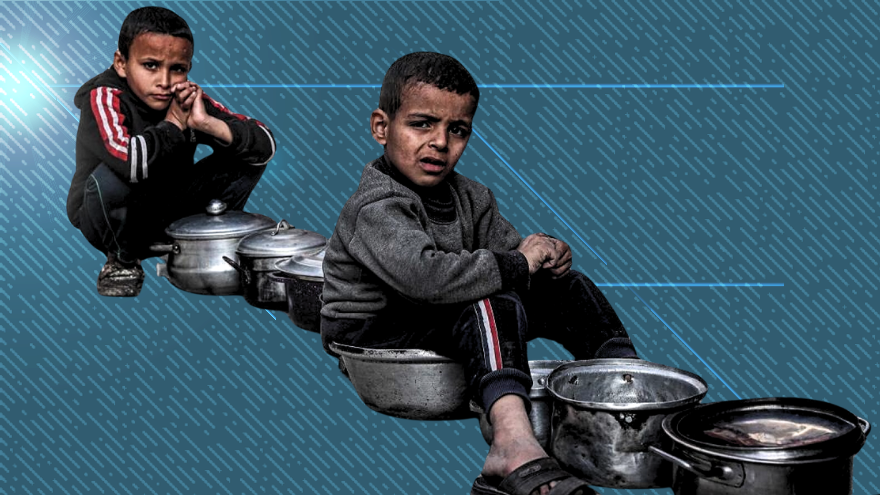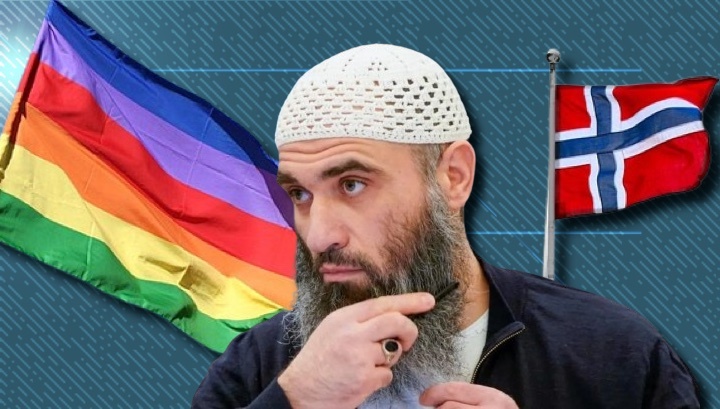According to a new report from Oxfam International, the conditions in Gaza “are beyond catastrophic,” as Israeli officials continue to deny aid in defiance of a landmark ruling by the International Court of Justice (ICJ) which determined that Israel is plausibly committing genocide in its treatment of noncombatant, civilian Palestinians. The ICJ issued six provisional measures compelling Israel to take all measures within its power to prevent genocidal acts, including preventing and punishing incitement to genocide, ensuring aid and services reach Palestinians under siege in Gaza, and preserving evidence of crimes committed in Gaza. “Israel’s illegal blockade of the Gaza Strip has significantly impacted humanitarian conditions and aid delivery for more than 16 years,” Oxfam stated in its report. “These conditions are now catastrophic as a direct result of the carnage in Gaza caused by Israel’s hostilities in response to Palestinian armed groups’ atrocities committed on 7 October.” The World Food Program has said that its convoy of trucks carrying humanitarian aid was being blocked by Israeli Defense Forces (IDF). In other cases, Israeli protestors have blocked aid trucks from entering Gaza, arguing that no food should reach starving Gazans until hostages taken by Hamas are released.An international human rights group has accused Israeli authorities of systematically obstructing the delivery of humanitarian aid to the Gaza Strip amid escalating food shortages that threaten a famine among the Palestinian people.
Israel has allowed 15,413 trucks into Gaza during the last 157 days of the war, Oxfam says. But the organization added that the population of Gaza needed five times that amount just to meet minimum needs. In February, Oxfam says, Israel allowed just 2,874 trucks in, a 44 percent reduction from the prior month.
“The ICJ order should have shocked Israeli leaders to change course, but since then conditions in Gaza have actually worsened,” Oxfam Middle East and North Africa Director, Sally Abi Khalil, said in a statement about the report. “The fact that other governments have not challenged Israel hard enough, but instead turned to less effective methods like airdrops and maritime corridors is a huge red flag, signaling that Israel continues to deny the full potential of better ways to deliver more aid.” Khalil said that Oxfam believes Israel is not simply failing to facilitate the international aid effort but "actively hindering" its delivery. “This coordinated attack by Hamas and other Palestinian armed groups resulted in the killing of 1,200 Israelis, mostly civilians, and the taking of 250 hostages – and included many serious violations of International Humanitarian Law (IHL),” the Oxfam report continued. “War crimes committed by one party do not justify the other to do the same in retaliation. Israel’s policies and practices amount to serious violations of IHL and human rights law, including collective punishment and the risk of genocide.” Oxfam says that in cases where Israel has allowed aid in, its officials have prevented its distribution. Hamas has been accused of impeding the delivery of aid, allegations which Oxfam says need to be investigated. “Yet these allegations do not absolve Israeli authorities of their own legal obligation to provide aid and to facilitate an aid effort commensurate to the critical needs of millions of people under both its occupation and its attacks,” the organization wrote. The Oxfam report outlines seven fundamental ways in which aid to Palestinians is being restricted:Loading...
A total military siege amounting to collective punishment: Israel controls all sea and air access to Gaza, as well as its land borders (including de facto control over the Rafah crossing operated by Egypt). Only two crossings (Rafah and Karem Abu Salem (Kerem Shalom) are open and are not fully operational, hence depriving the civilian population of Gaza of life-saving supplies, including food, water, medicines and fuel. An unjustifiably inefficient process of inspection protocols: Aid is being kept snarled up in red-tape, with onerous, repetitive and unpredictable approval and screening processes that can contribute to trucks being left in transit and stranded in queues on average for 20 days. Arbitrary rejections of ‘dual-use items’: Israeli authorities routinely refuse life-saving aid from convoys through random decisions, often due to their opaque use of its proscribed ‘dual-use’ list. Decimation, destruction and disruption: The Israeli assault is unparalleled in its intensity, brutality and scope, and aid workers in Gaza have been caught up in the same danger, trauma and displacement as the rest of the 2.3 million Palestinians trapped in Gaza. Using collective punishment and starvation as a weapon of war has made the enclave practically uninhabitable. Attacks on aid workers, humanitarian facilities and aid convoys: The process of notification systems or “deconfliction” – or protection from military attack – of civilian and humanitarian assets is not respected and untrustworthy. Humanitarian workers, convoys and aid assets like warehouses and storage sites and guesthouses – as well as life-saving civilian infrastructure like hospitals – have been targeted and attacked. Absence of safety and forced displacement: There is nowhere safe in Gaza, despite Israel’s claims it is doing what it can with advanced warnings and evacuation advice, 1.7 million Palestinians (more than 70% of Gaza’s population) are displaced. Systematic denial of humanitarian missions and access restrictions on humanitarian workers: Israel has entirely sealed off northern Gaza and rejected access to humanitarian missions. International humanitarian workers are denied access into Israel and the OPT as requests for work visas are not being processed. Soon after the report’s publication, Israeli officials asked the ICJ to not issue emergency orders for it to boost humanitarian aid to Gaza. In a legal filing to the United Nations’ top court, lawyers for Israel denied their country is deliberately causing humanitarian suffering, stating it “has real concern for the humanitarian situation and innocent lives, as demonstrated by the actions it has and is taking" in Gaza.

